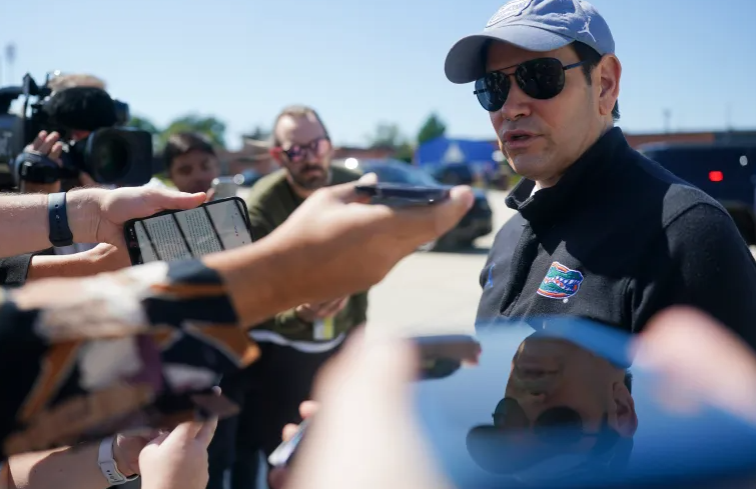Best Free Resources for Traders in 2025: From Charts to AI Alerts
December 01 , 2025

U.S. Senator Marco Rubio arrives in Israel to discuss the Gaza war following reports of an Israeli strike on Qatar. Explore the implications for U.S.-Middle East policy.
U.S. Senator Marco Rubio has touched down in Israel for high-level meetings amid escalating tensions in the Middle East. His arrival comes on the heels of reports that an Israeli strike targeted Qatar, a development that has sent shockwaves through diplomatic channels and raised questions about the region’s stability. Rubio’s visit underscores Washington’s growing involvement in the conflict and the delicate balancing act the U.S. faces between its allies and broader geopolitical interests.
Senator Rubio, a prominent member of the Senate Foreign Relations Committee, has long been a vocal advocate for a robust U.S. role in the Middle East. His decision to travel to Israel during this volatile moment signals both solidarity with America’s closest ally in the region and a desire to shape U.S. policy on the Gaza war.
For Israel, Rubio’s presence offers reassurance at a time when international criticism is mounting over the scope of its military operations. For the United States, his trip provides a platform to reaffirm support for Israel while also addressing concerns over the humanitarian toll of the conflict.
The reported Israeli strike on Qatar has complicated an already fragile geopolitical landscape. Qatar has played a key role as a mediator in Middle Eastern conflicts and has hosted talks involving Hamas and other regional actors. An escalation involving Qatar risks pulling additional countries into the conflict and jeopardizing diplomatic backchannels that have, at times, helped de-escalate crises.
Rubio’s visit will almost certainly include discussions on how to contain fallout from this strike. For U.S. policymakers, the challenge lies in balancing unwavering support for Israel with the need to maintain working relationships with Gulf states like Qatar, which hosts a major U.S. military base.
The timing of Rubio’s trip also reflects the increasing pressure on U.S. leaders to respond to the widening Gaza war. With civilian casualties mounting and regional tensions soaring, Washington faces growing calls to step in more forcefully. Rubio’s hawkish stance could influence how the U.S. frames its support for Israel in the coming weeks, particularly in Congress.
At the same time, the Biden administration is attempting to keep channels open with Arab partners, many of whom have condemned Israel’s actions. The divergence between congressional voices like Rubio’s and diplomatic efforts from the White House highlights the complexity of America’s role in the conflict.
Across the Middle East, Rubio’s visit is being closely watched. For Qatar, the strike represents not only a direct security threat but also a challenge to its position as a diplomatic hub. For other Gulf states, the incident reinforces concerns about being drawn into the conflict, directly or indirectly.
Meanwhile, Palestinian leaders have criticized the U.S. for what they see as unconditional support for Israel, a perception likely to intensify with Rubio’s presence in Jerusalem. Regional analysts warn that such optics could undermine America’s credibility as a neutral broker in peace efforts.
Even as Rubio underscores military and security concerns, the humanitarian toll of the Gaza conflict looms large. International aid organizations have sounded alarms over shortages of food, medicine, and safe shelter for civilians in Gaza. How Rubio addresses these issues — and whether he pushes for stronger humanitarian corridors — will be a test of U.S. commitment to mitigating human suffering while supporting its ally.
Rubio’s meetings with Israeli officials are expected to focus on three key areas: the future of Israel’s military strategy in Gaza, the regional implications of the strike on Qatar, and the role of the United States in shaping post-conflict stability. While immediate breakthroughs are unlikely, the senator’s visit underscores Washington’s determination to remain deeply engaged in Middle Eastern affairs.
The longer-term question is whether the U.S. can balance its support for Israel with the need to maintain regional partnerships that are critical for counterterrorism, energy security, and diplomacy. Rubio’s trip may set the tone for congressional debates on funding, sanctions, and military aid in the months ahead.
Senator Marco Rubio’s arrival in Israel at such a critical juncture highlights the intense geopolitical stakes of the Gaza conflict. With an Israeli strike on Qatar raising new risks of escalation, the senator’s visit reflects Washington’s urgent need to recalibrate its approach. Whether his hawkish stance will strengthen U.S.-Israel ties or strain relations with key Arab partners remains to be seen, but one thing is clear: the Middle East has once again become a defining arena for U.S. foreign policy debates.
#MarcoRubio #Israel #GazaWar #Qatar #USForeignPolicy #MiddleEastConflict #Geopolitics